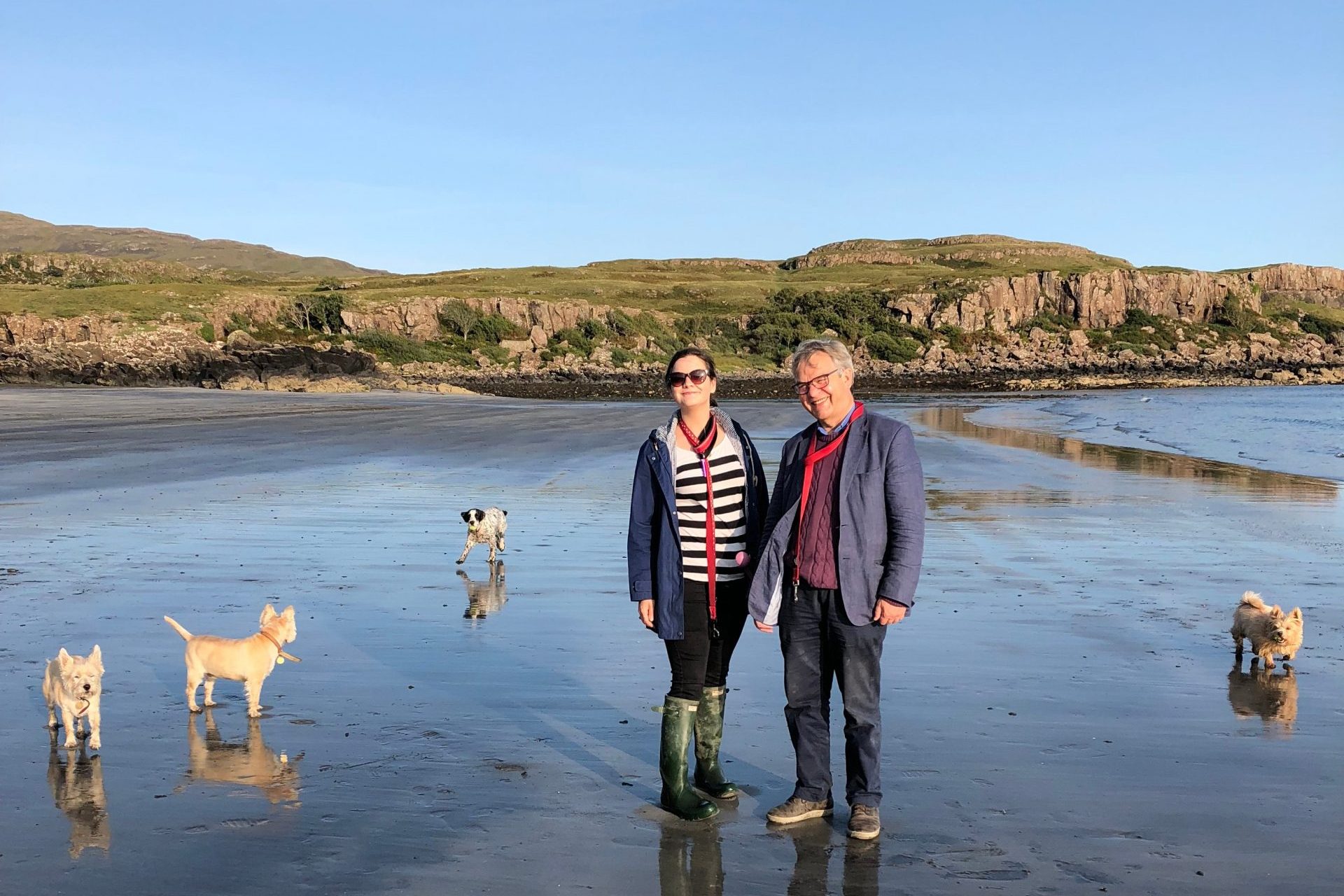Simon Jennings has been Chair of the Board of Trustees & Directors of Gift of Life since the Foundation’s establishment eight years ago. We would not be where we are now without Simon’s expertise in management and finance. Today’s conversation with Simon is about charity work, motivation to do good and inspiration to discover exotic destinations like Eritrea and the Hebrides.
What makes you help charities?
First, one ought to realise that anything you do is a drop in the ocean. You should always feel that what you’re doing is the least you can do to help charities. You should always approach it with a sense of privilege and be ready to learn something from what you do. We can best help people if we see them as having something to teach us and perhaps give us more than we give them. This is my approach to my work with charities.
It’s not just doing any sort of work for charities; it’s being engaged in a particular project and responsive to things that move me. Without criticising large charities, I prefer to support projects where I can give my energy, efforts, and whatever other resources I have to initiatives where I can see my involvement is an active contribution.
What’s your motivation to support a cause related to Russia?
The answer to that one is multi-layered. I am an orthodox Christian and a member of the Russian Parish and the Russian Diocese in the UK. I started going to Russia in 1980s and have found that the Russian church has given me a spiritual home for which I am endlessly grateful.
In going to Russia, I come to love Russia. I am, of course, aware of enormous problems in the country, but I am inspired by the resilience of people, the rejuvenation and the deep friendliness that I’ve encountered there, by the cultural aesthetic, beauty of the country and the Russian spirit.
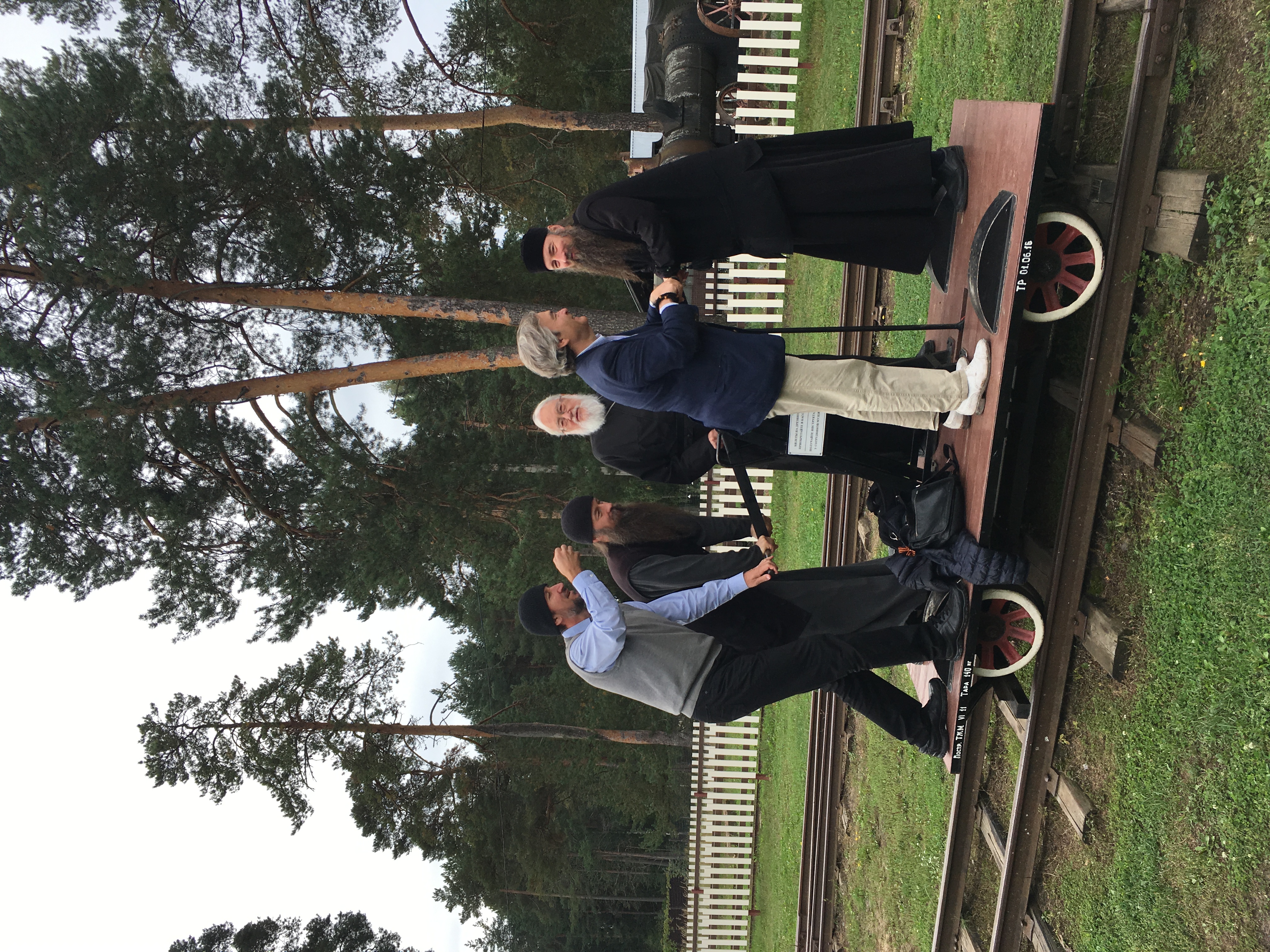
Simon with a metropolitan and two heiromonks at a Russian railway museum
I admire the way in which Russians deal with their history. Every Russian has a family loss over the Great War or the Soviet period in general. The wish to respect that memory, and to deal with it contribute to a seriousness in the Russian character. Russians can be extremely friendly, very loyal, but you don’t expect smiles as an immediate reaction. You have to earn the intimacy and smiles that you get, because there is that seriousness, rather than a superficial reaction.
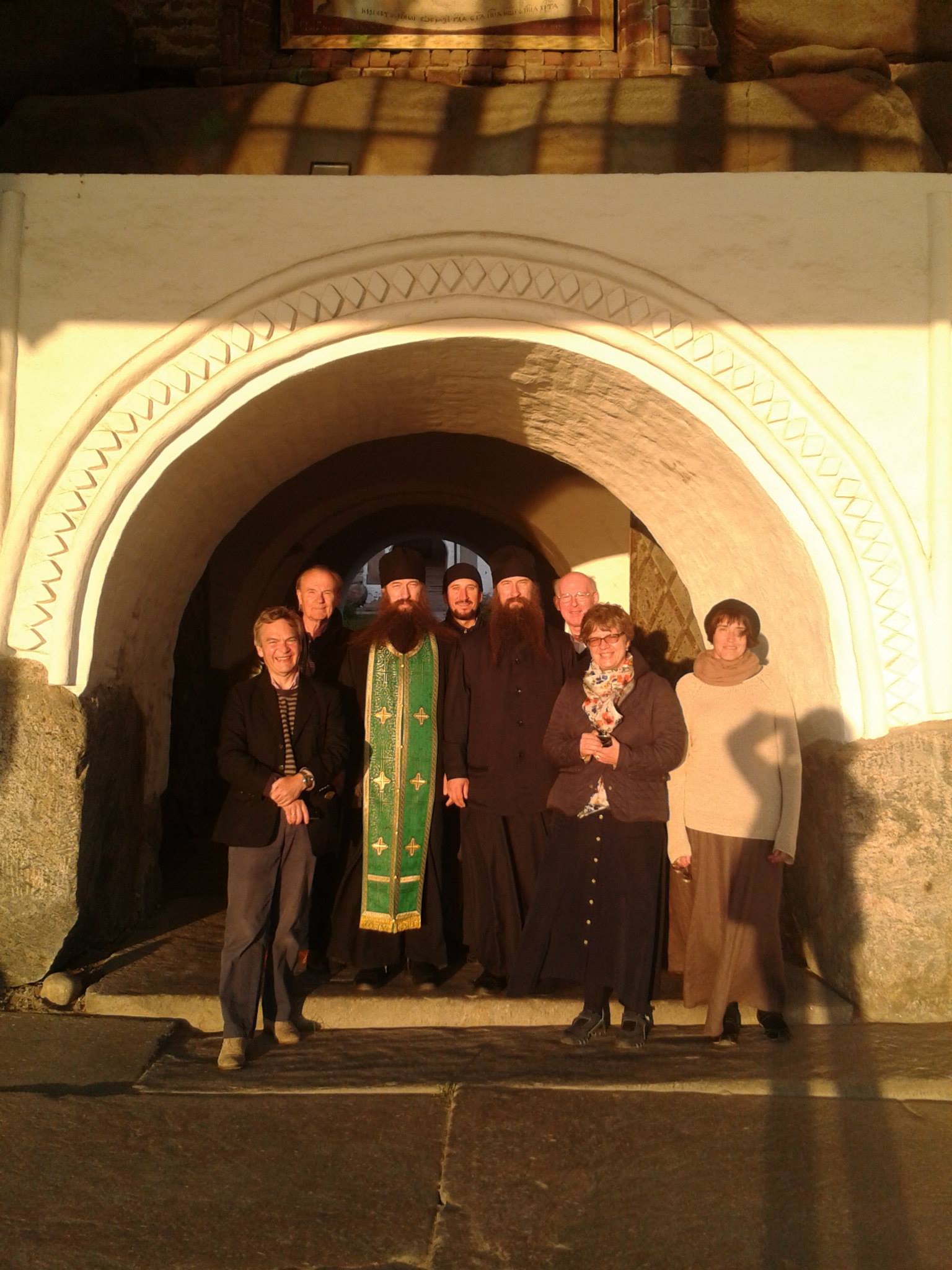
Simon and Frances at the Solovki, 2013
What appeals to you in Gift of Life?
The easy answer to that is seeing what it does. I got involved to Gift of Life through Dina Korzun, one of the co-founders of Podari Zhizn, the sister charity in Russia. Seeing the Children’s hospital (Dmitry Rogachev National Research Center – Editor) both I and my wife Frances were completely knocked over by the whole atmosphere and enthusiasm with which it has been developed and the commitment of the staff in reassuring children undergoing traumatic treatment. One of the things that most impressed Frances was to see a mock-up CT scan outside the main scanning room with a little Teddy bear that could be used to explain to little children what was going to happen, so they don’t need to be frightened.
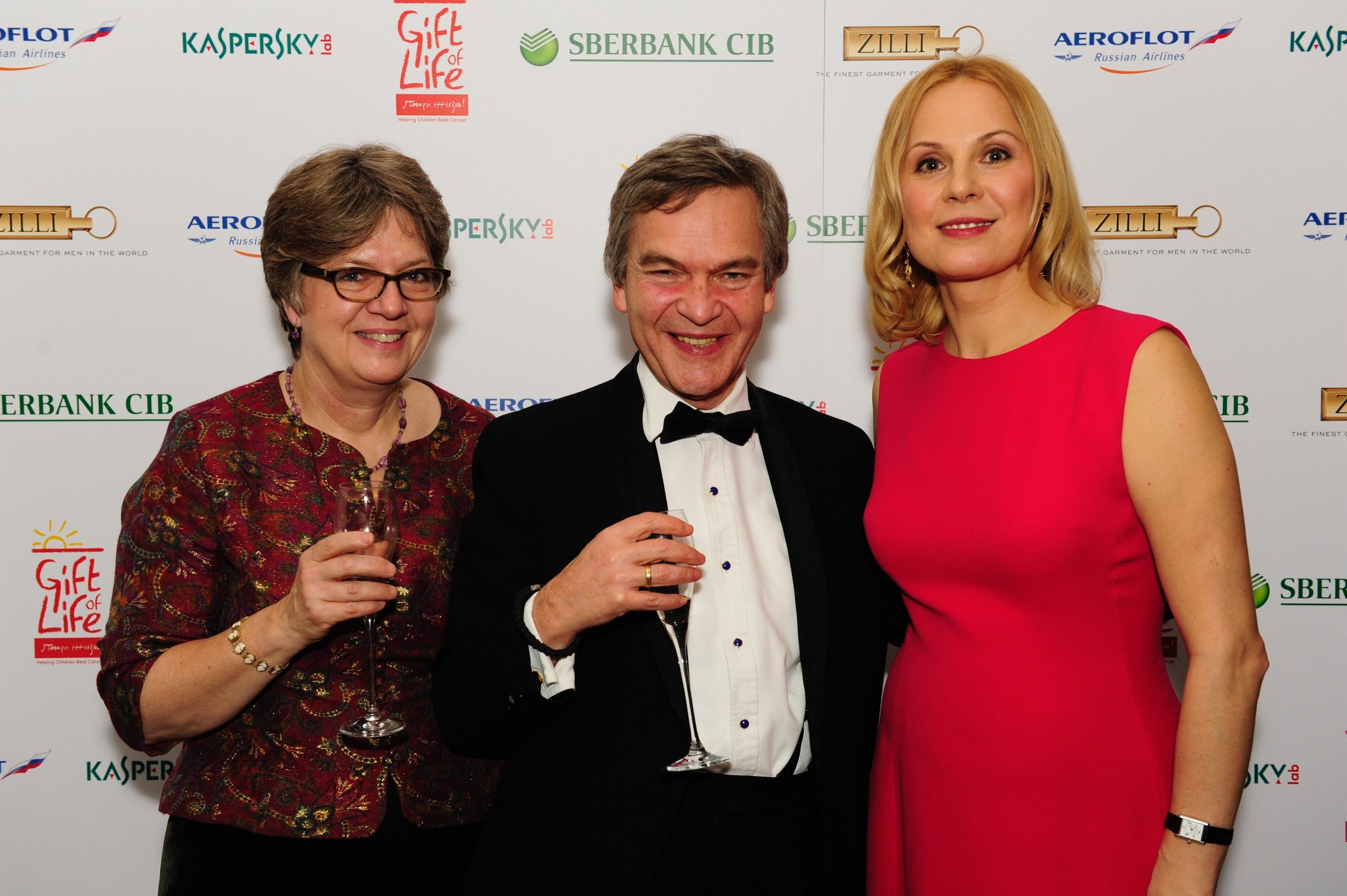
Simon and Frances with Dina Korzun at the Gift of Life Gala 2015
The way in which the educational needs were taken care of, the standard of equipment, the commitment of the nursing staff and the enthusiasm of the doctors, all of that resonated deeply and we thought this is just such a tremendous project. The difference it makes to the individual children is an immensely involving and satisfying thing to support.
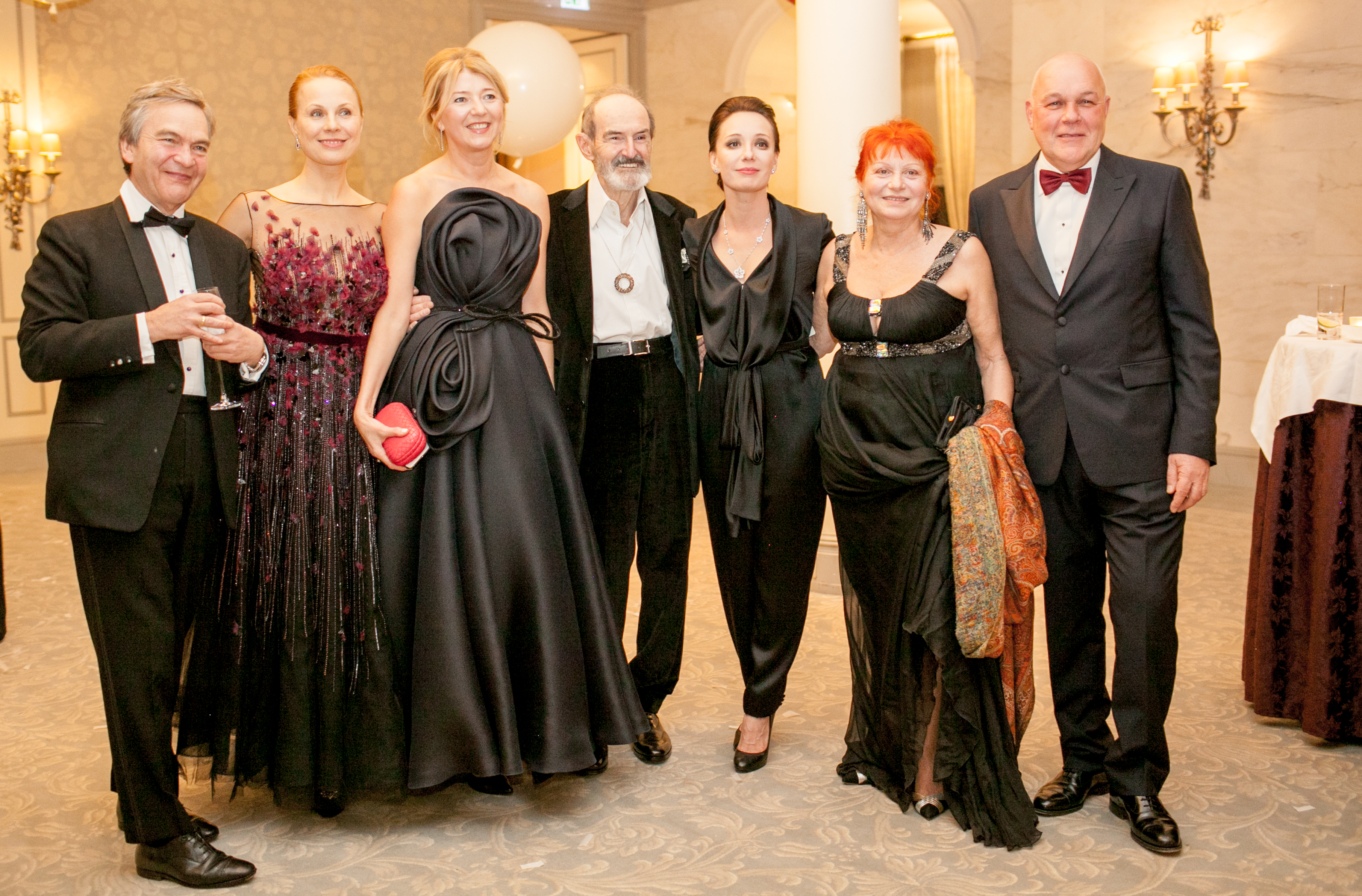
Simon, Dina, Lyuba Galkina, Erik Bulatov, Chulpan Khamatova and guests of the Gift of Life Gala 2016
I try to do what I can in the UK to make Gift of Life effective, keep down the administrative costs and simply by participating in the general management pays off. We’ve been efficient and effective with a small, dedicated team.
What other charities and causes do you support and why?
As I come towards retirement, I am trying to focus on what I feel most rewarding – religious charities and Gift of Life. Obviously, religious charities play a large role and now I’m a Treasurer of Parish which is quite a large job since it’s a very active Parish. I am the advisor to several orthodox charities and Director of the Institute for the Orthodox Christian Studies in Cambridge. Also, I’m a Trustee of a newly formed English branch of big Russian charity, the Imperial Orthodox Palestine Society, which is a 19-century institution established to encourage contacts with the Holy Land and restore the religious buildings and churches there.
On the academic side, I am a Treasurer of the Ecclesiastical History Society. On the cultural side, I’ve been for a long time a Director of Baroque orchestra but I’m coming to the end of my term on that.
One other charity which Frances and I have just got involved in is a Catholic organisation, the Order of Malta, which has an NGO side to it. It effectively deals with a lot of disaster relief around the world. Our daughter has been running a camp in Lebanon for mentally disturbed and disabled people to go on holiday. And there is a project we want to financially support: which would bring physiotherapy, teaching, craft activities, and art therapy to at least one of the hospitals in the Bekaa valley. Again, it’s nice to be involved in something small enough to see the results.
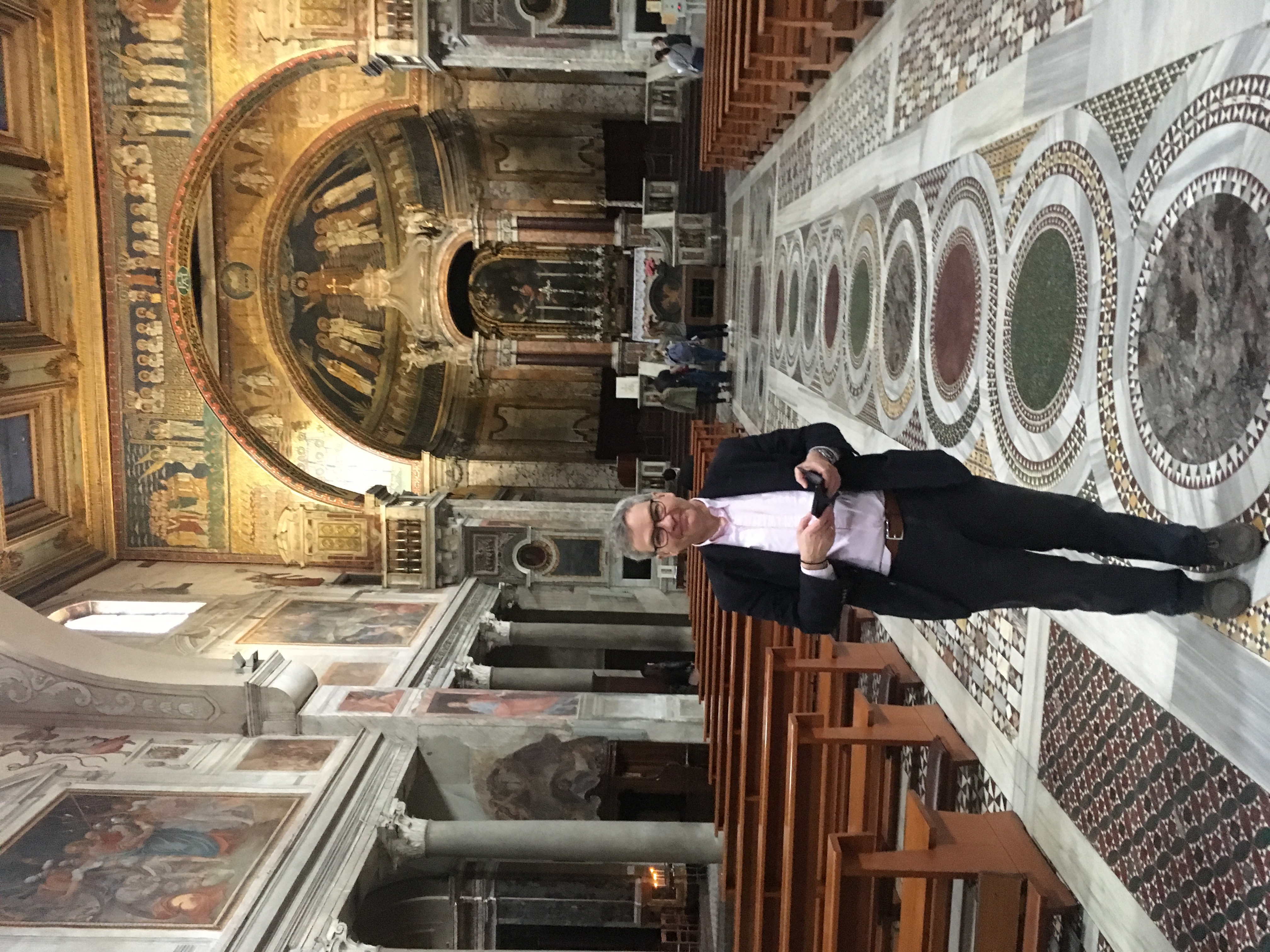
Simon in Santa Maria Maggiore in Rome
You have a lot on one plate. Where do you get time to manage all these projects?
Frances and I have never found the answer to that. Sometimes things get overwhelming, but we manage somehow. We are going to reduce our working hours and move to Oxford to work from home probably. We’ll concentrate on what we do for charities. The big thing in all of this is my total reliance on Frances. She and I make a good team, but she certainly provides all the support and enthusiasm that needed.
Talking about growing criticism of the UK charity sector, what are your thoughts about it?
Some of the larger charities experienced the full horror of fallen world recently which has affected many other organisations in the same way, from public media organisations to churches. Charities have got to learn the seriousness of safeguarding, and in discovering the weaknesses of systems and individuals learn to put in steps to prevent that happening in the future. To some extent, bringing to light problems leads to better solutions. We should not abandon our charitable efforts because of such problems but need to have structured systems and procedures in place which limit the possibilities of negative things recurring.
Yes, there will be a falling in donations to large charities, but that won’t do them an enormous amount of harm in the long term. This is an ongoing process, but the sector will recover from the shocks.
There is a need for better regulation in the UK. The Charity Commission is understaffed and it’s desirable to give it a bit more resources. There is perhaps a need to encourage consolidation of charities, but without making everything into huge organisations. There needs to be a greater scrutiny and help towards those charities which are really doing well.
I don’t think criticism will stop people’s charitable intents to giving. In a way it gives the smaller, targeted charities an opportunity to say that they provide a more transparent way of doing things. As we do at Gift of Life, running the charity in a very transparent and accountable manner, with awareness of our responsibilities and careful supervision of who benefits from our help.
How would you explain to a child why it’s important to help others and support charities?
I find that individually children are deeply sympathetic to those they see less fortunate than themselves. It’s part of the job of any parent to introduce children to an awareness of what they have, and others might not have. We need remind ourselves about it regularly and try to give our children a realisation of it. If I can put it in a religious context: “freely you have received, freely give”. Those of us who have found ourselves in fortunate positions in life, we have freely received, and we can and should give to those who lack particular gifts or resources.
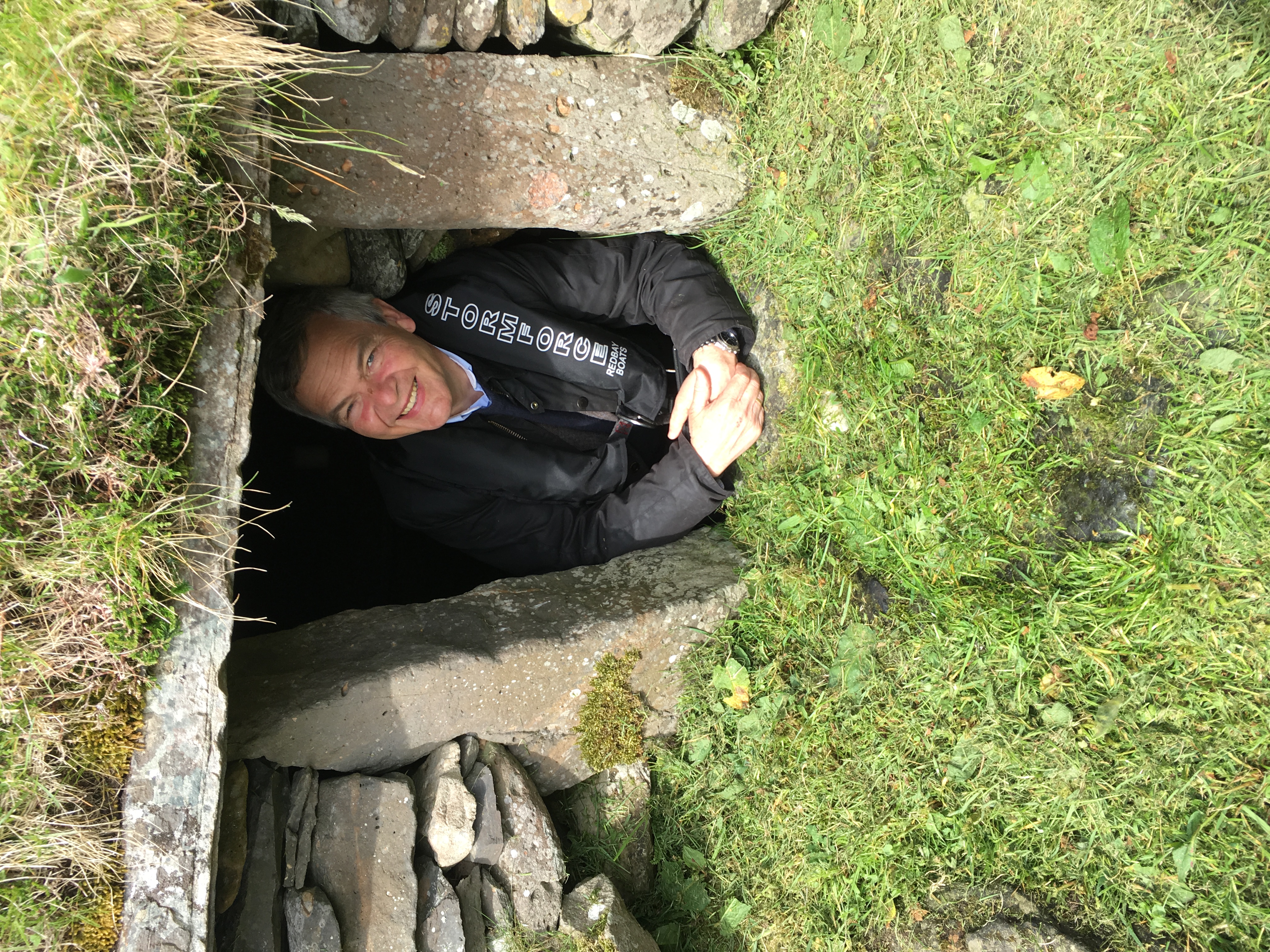
Simon on St Brendan’s Isle of Mull
What really resonates with children is just simple things. For example, seeing pictures of children who need help, knowing what they might be hoping for, seeing the toys they hold, the pictures they draw, realising they have the same aspirations, hopes, loves, sensibilities and fears. Just a little gesture of friendships sometimes can be of great help, and children respond to opportunities to show that sort of friendship. And we should always remind our children that it is important to help directly, show personal involvement, and to take care of those around who are in need.
What’s your advice on how to maximise a charitable donation?
There are some significant tax incentives in the UK which should be used. The most obvious is the Gift Aid scheme which enables individuals to make gifts out of their income, provided they have paid a minimum of the 25% value of the gift they are making by way of income tax or capital gains in the year concerned. That tax that they have paid themselves is then available for reclaim by the charity, and the donors who are paying tax of higher rates are also able to deduct the gross tax value of their gift against any higher rate liability.
Gift Aid is a great incentive to giving, because it enables any gift to be increased in value by 25% at no cost to the donor, and for those paying higher rates of tax it gives a bit of a saving in the tax they would otherwise pay.
There are other incentives such as exemptions from inheritance tax. Legacies to charities in wills are entirely exempt, and since inheritance tax is 40% it’s a very significant saving. That saving is increased even to the benefit of other beneficiaries of the estate, because if you leave 10% or more to charity the overall rate paid by the estate goes down from 40% to 36%. All these incentives provided under the tax system should be maximised.
You travelled extensively and visited some rather exotic destinations like Armenia and Lebanon. Was it something that takes its roots from the family?
Frances and I have been very fortunate to travel a lot, and to some extent I was used to moving countries from young age. I was born in Asmara the capital of Eritrea. Then my family lived in Northern Nigeria for a time, and I was brought up mainly in Uganda. Then the family returned to the UK when I was 13.

Simon and Phoebe the Pomeranian, Oxford
I had a colonial upbringing which was an amazing experience. I absolutely adored growing up in Uganda with relative freedom and great open spaces, and the wildlife there was immensely exciting, even the snakes.
It was a very liberating childhood, and I was devastated to leave it for grey, wet England.
Then I did not travel very much until after university, and I started again with Italy and Greece. I discovered Russia in 1980s and visited it quite often. We visit our children and grandchildren in Australia. We’ve covered most of the world, but my most exciting experiences was are still those from my childhood.
Any other exciting destinations you’d like to go to?
Now we are trying to reduce our travelling because it is exhausting. The experience of going through the airport is not so much fun. We are tied more to the UK by having a cottage in one of the isles in Hebrides which we absolutely love. It’s a real sanctuary, beautiful and almost completely cut off. With five dogs in our household, it becomes extremely difficult to cater for them too. So, it’s going to be easier to stick to Oxford, the Hebrides and an occasional trip abroad.
Luckily, from a cultural point of view, England has a lot to offer. We love music and enjoy opera. As keen supporters of various country opera houses, particularly Garsington Opera, Longborough and Glyndebourne, we find this gives us our most enjoyable recreation.
Photos kindly provided by Simon and Frances Jennings and the Gift of Life photo services.
The cover photo: Simon with his daughter Anastasia and assorted dogs on Mull
We can help more children beat cancer together! Please, visit our Donate page to support.

